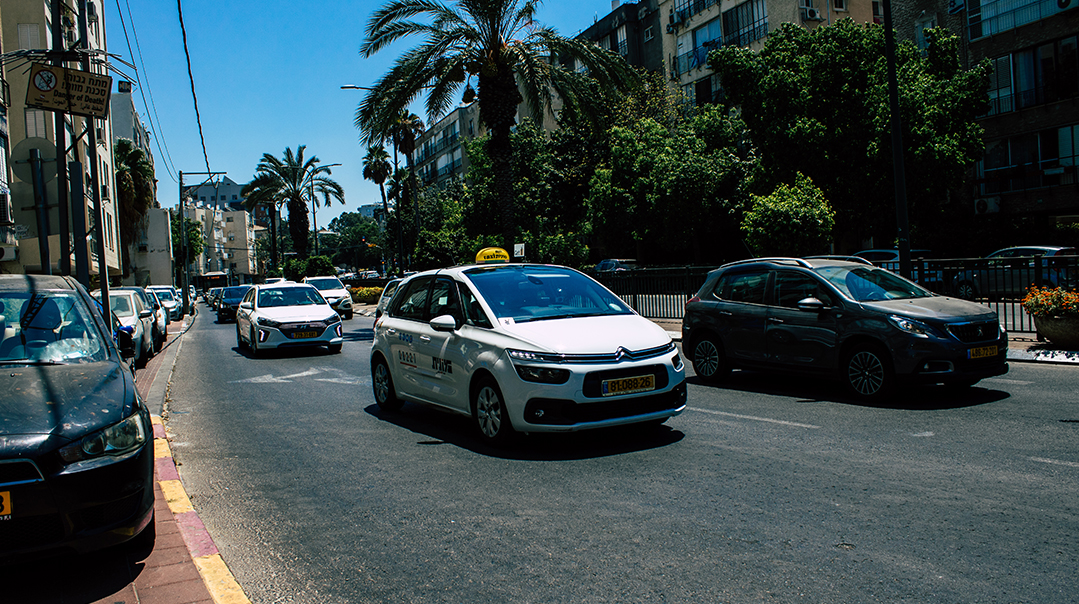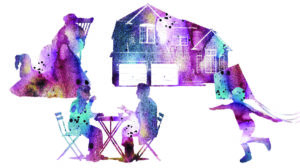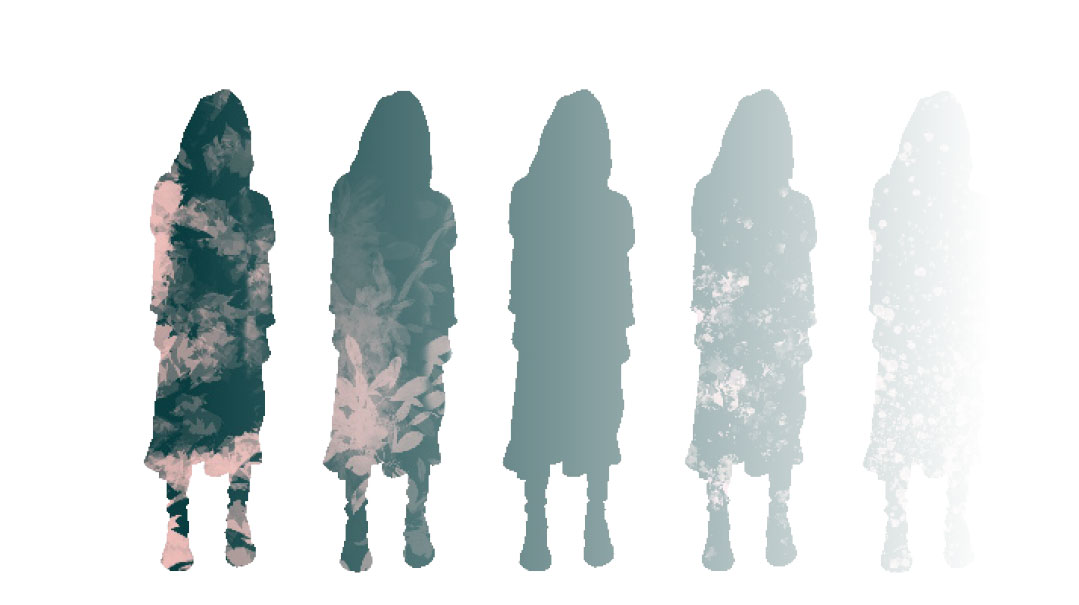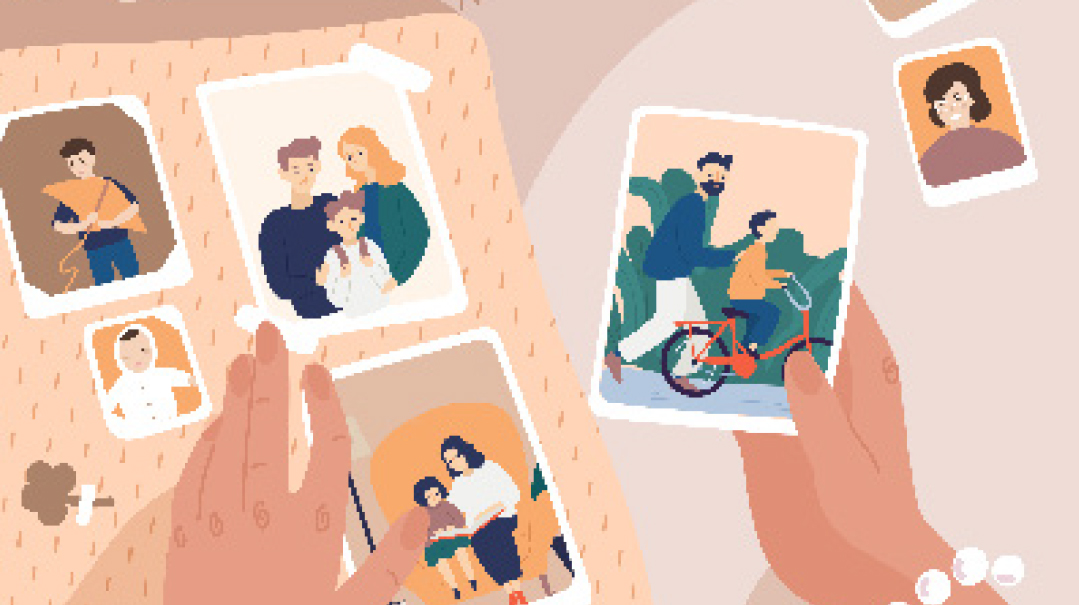Tale of a Dress

I was searching for my missing gown, and found something worth much more

I
t was a couple of weeks until my son’s wedding, and I still hadn’t found a dress.
Amid a hundred other preparations, I pulled myself away and started working my way through the stores. Glitter, glimmer, tulle, sheer. Colors raining and sparkling. It was dizzying. So many fabrics between my fingers. One store, another.
Then, there it was. A beautiful dress, black lace on cream. It needed some adjusting, some matching lace to lengthen it. I didn’t think it was that big a deal.
But the lace was turning out to be a lot more complicated than I’d envisioned. If I don’t know dress stores, I was way out of my depth in the fabric and trimming stores. I trudged down Jaffa Street, clutching the stiff, pretentious paper bag with the dress inside. It was heavy and expensive, and I was uncomfortable schlepping it up and down the street, taking it out again and again. All afternoon I tried to match it up, make it work. Nothing.
A friend who knows about fabrics and sewing came to help me try again the next day. More stores, walls full of swatches, endless bolts of fabric. In and out again went the dress. Hm, hm. Not quite.
“It’s a hard fabric to match, and really, I have to say, it won’t be a simple job to alter,” my friend said at last. “I’m sorry, but I think you should get something else.”
The dress was returnable, but I didn’t want to return it. I wanted out of the stores, away from the hustle-bustle, perfect figure, perfect color, mirror, mirror on the wall.
But on I ventured. My friend had to leave. Still clutching the heavy dress, I entered another store, hoping to find something, hoping even more that I’d be able to match up the dress in the bag.
I was tired, I didn’t have patience. I was hardly looking at the price tags anymore. I was dragging the old bag along when I looked up and saw it. An exquisite piece. Elegant and demure.
And expensive. More than we could afford really.
But the chasunah was fast approaching, the wedding would be in my American hometown, and I didn’t want to be the dated Israeli. I wanted to get it right, for my sake and for my son’s, who’s so much more “today” than me. I wanted him to be proud of his mother.
This gown didn’t need altering. It was perfect. I called my husband who was at work, nearby. He came to see it and gave his approval.
“Try it on properly at home before you give the other one back,” he said.
We flagged down a taxi. He dropped us near our home, and I proceeded to try on the new dress, declaring it beautiful in the comfort of my own mirror. I swished my arms, gave a little jig. I’m the mother of the chassan…
But where was the other dress? The maroon paper bag? I needed to give it back by the next day.
We couldn’t find it at a glance, but my room was a mess from the trying on and taking off, clothing strewn about everywhere.
“It must be here somewhere,” I told my husband. “I’ll find it in a bit.”
He blithely went back to work.
An hour later, it was clear it wasn’t anywhere in my house. I started trembling. I couldn’t afford two dresses. I could hardly afford the one. I had to find that dress.
I’d been lugging around the bag for days trying to match it, and now it was gone?
I wracked my brain. I distinctly remembered going into the car with both bags. It must be in the taxi.
My heart started racing. This was impossible. We hadn’t even ordered the taxi; we’d just flagged it down. It hadn’t dropped us at our home either, but rather on a street between numbers 13 and 15. We lived at 15. There were 68 apartments in our building. Even if the driver realized the bag was there, he would have no idea where to find us.
Hashem is a Kol Yachol, I thought, but really, is He going to make a huge miracle for me?
Sadness turned to resignation. Hashem will send us the money…
But my friend, who called just then, was adamant. “You have a duty to do hishtadlus. Something. Call the national hashavas aveidah line.”
I called because of her. And so I could absolve myself of the guilt of not doing anything.
The woman on the other end of the line took copious notes. Color, size, description. She must have heard the sigh in my voice, the slight tremor when I told her how much it was.
“They say there’s a well-known segulah for finding a lost item,” she said, and proceeded to tell it to me in rapid-fire Hebrew, with all the sincerity in the world.
I was warmed by it, even as I was dubious.
I was haunted by the dress all night. The new one, stiff under its plastic, was a taunt. But the next morning, when I went out to deal with a few things for the wedding, I got so busy, the incident was knocked out of my mind.
I got home late and noticed a little paper on the billboard outside the building. Hashavas Aveidah, read the appellation. I walked on. When I was already at the elevator, something niggled. I went back.
Do you know of an elderly couple from chutz l’Aretz who lost something in a taxi? Read the note, in Hebrew. Then it was written in English, surely Google Translate, for it was titled “The Lost Shabbat” and again spoke of “the elderly couple.”
I burst out laughing. Is that how my husband and I, in our forties, appeared? And oh, we must have used some English or Yiddish words so the writer assumed we’re not from here. Then again, perhaps it wasn’t about us.
I called the number, not thinking too much of it.
I described the dress, the bag.
“I have your dress,” the man said.
I was confounded, then filled with the sweetest relief. “But how, where?”
“What building do you live in?” he asked.
“Fifteen,” I said.
“Phew! The driver thought 13, so I had to get permission from the vaad habayit of 13, 11, and 9 to hang up the note on the billboard. After no one responded, I added 15, too.”
“You’re not the driver?”
“No, I live around here, and I saw this guy circling around in his taxi, stopping every few moments, looking bewildered and confused. After he found the bag in his car, he hung around the area, hoping you’d come back down to look for it. He wanted to go home. So I said, ‘I live nearby, I’ll figure something out,’ and he left it with me.”
I was trying to wrap my head around what happened. The care of people who don’t know me, Hashem’s plan. I expressed it all to this man on the phone, fervently and openly. When I went to his house, a three-minute walk away, I saw he was careful to avoid my gaze. I was embarrassed by my outburst, but his face was lit up with joy at being part of this mitzvah.
He gave me a card. Uzi Barak, taxi driver. I called Uzi as I was holding the bag with disbelieving fingers.
I could sense his broad smile, hear his, “Baruch Hashem, yishtabach shemo.”
I called the woman from the organization. Maybe this miracle was because of her segulah? She too felt my joy keenly. I walked home on a smile, holding the dress, embraced by the kindness and goodwill of strangers.
(Originally featured in Family First, Issue 660)
Oops! We could not locate your form.













